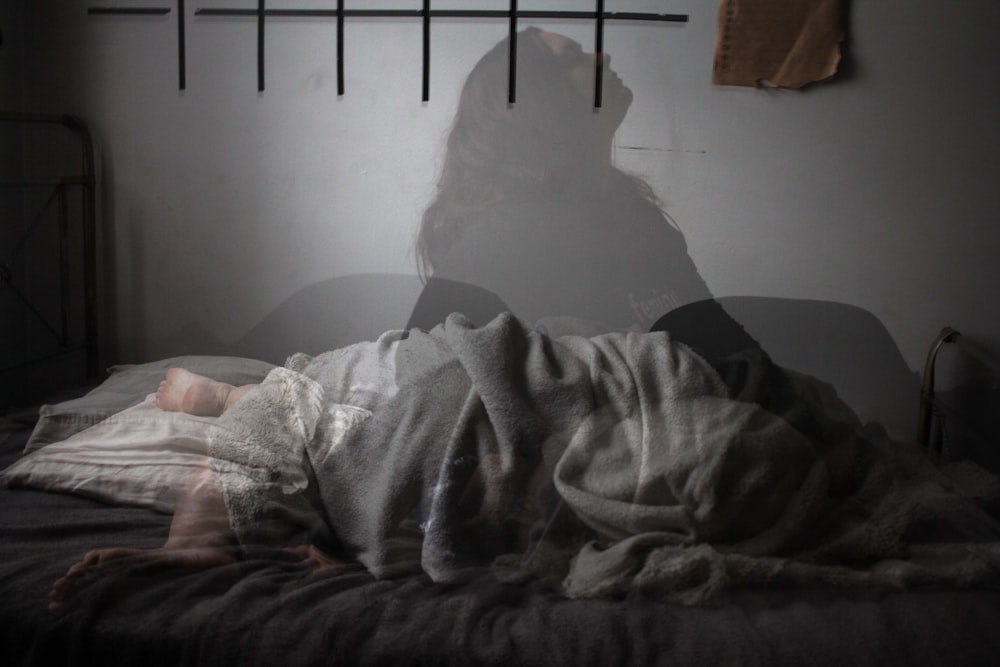
Many younger people and elderly people wonder, Why do I have a bad memory? Memory issues are more common in elderly people, but having a bad memory can be an issue many young adults struggle with as well.
It happens to all of us from time to time. We can’t remember where we left our phone, we can’t remember if we took our medication or not, or if we locked our door or not. We forget which turn to take on the road, even to a familiar location.
For some young adults, it’s even worse than this. Struggling to remember what we did as recently as last weekend, or forgetting important words of advice from a close friend who we just spoke to an hour ago.
When our memory fails us on a regular basis, it becomes concerning. We don’t want to keep forgetting things, as a bad memory can impact the quality of our relationships and even our work performance. When we notice we have a bad memory, we don’t only wonder, Why do I have a bad memory? We also wonder if it’s going to get worse.
To fix our memory issues, we must first get to the root of the problem. Below are 5 reasons why you may have a bad memory, some of which are reasons you truly may not have thought of.
1. Dopamine Deficiency
Dopamine is an essential neurotransmitter for motivation, focus and memory. It helps us to perceive making an effort as worthwhile, improving our ability to concentrate while we’re working or studying. Dopamine’s role in memory is all about consolidating our studies or experiences. Bursts of dopamine fire off as we revise or learn related information, making new memories and links between them stronger.
Without enough dopamine, we are unable to focus, we procrastinate constantly, and find ourselves forgetting new information. Attention-Deficit Hyperactivity Disorder (ADHD) is an example of this, with treatment aimed at restoring dopamine. As Soumya Choudhary, Head of Research at Behavidence, explains, “One form of memory that functions poorly in young adults with ADHD is working memory. Working memory refers to the active processing of information held in short term memory.”
Shagoon Maurya, the founder of Ur Safe Space, adds, “The inability to concentrate on assigned tasks can have a poor effect on one’s working memory. Similar to anxiety, it might not necessarily erase significant memories.”

2. Insomnia or Sleep Disorders
Adequate sleep and proper sleep hygiene is very important for our brain health. In the short term, poor sleep can leave us feeling unable to focus and overall rotten. In the long term, we’re at a higher risk of disorders such as Alzheimer’s disease. When we’re sleeping, much of our memory consolidation occurs. The time we spend “offline” while asleep allows for newer memories to be strengthened and moved to the neocortex. Here, they stay clear and preserved.
As for long-term health, sleeping well supports brain detoxification. Deep sleep allows waves of fluid to wash out metabolic wastes and other toxins, including the amyloid proteins behind Alzheimer’s disease.
3. Anxiety
Anxiety is another known cause of impaired working memory. You may notice that when you’re anxious, your “mental bandwidth” shortens, and sometimes you don’t even remember what you said two minutes ago. If you happen to be having an anxiety episode during a conversation with a loved one, you might not remember much of what they said, either.
Anxious thoughts can affect memory by taking up too much of our attention. After all, worrying about whether or not you turned the oven off, or if you’re being too socially awkward, means you can’t concentrate on what’s going on around you. Soumya Choudhary explains that, “In young adults with anxiety, they may feel a sense of heightened anxiety during an event, leading to a sense of disorientation and failure to register the full impact of the moment. The event does not make it to long term memory and fades from the short term memory. It is quite similar in people with phobias and memory loss.”
4. Physical Trauma
Traumatic brain injuries (TBI) aren’t only caused by serious, one-time accidents. If you play contact sport, or used to, you may have neurological damage that has accumulated over time. But shouldn’t this only affect your older memories?
Soumya Choudhary clarifies that “Individuals with TBI may completely remember their past memories because they are already stored in their long term memory space, but they have trouble forming new ones. They will have episodes of forgetfulness such as not remembering where the car keys are. In addition to this, they also have prospective memory problems, for example, remembering to pick up children at a certain time, or taking medicines at a certain time.”
Not everyone who experiences a traumatic event develops amnesia. However, people with a heightened cortisol response during and shortly after trauma, such as road accidents, are less likely to remember the event. This is actually beneficial in a way – they are also at a lower risk of developing PTSD.

5. Psychological Trauma or PTSD
Psychological trauma can be even worse for your memory function than anxiety. Psychological trauma cuts deeper emotional wounds than generalized anxiety. Some symptoms of psychological trauma, such as gaps in our memories, can actually be our bodies’ and minds’ way of protecting us. As Soumya Choudhary explains, “Here the individual can have poor memory in the way of dissociative amnesia … This happens because memory is a coping mechanism and the best way for the individual to resume normal life after the traumatic event is to block it out.”
In other cases, dissociation and other protective mechanisms to cope with trauma can impair your ability to form new memories. I have a few close friends with traumatic childhoods, and I often have to remind them of things we recently said or did. Even a 10-minute interruption can leave me needing to remind them of where we left the conversation! Generally, their long-term memories such as their time at university work just fine, but their short-term memories don’t always get reinforced. When this happens to people, they may be disassociating often, due to their trauma, which impacts the ability to form memories. Until someone is fully healed from their psychological trauma such as domestic violence, they may continue to disassociate often and struggle with memory impairment.
Brain Health
There are ways to help keep your brain healthy and memory functioning better. This includes getting counselling for trauma or chronic anxiety, doing brain stimulation exercises, as well as eating more foods that are good for brain health such as anti-inflammatory fatty acids, antioxidants and fibre. You should also maintain a healthy sleep schedule and try to stay away from prescription sleeping pills if you want to improve your memory function.
If you want to find out if you’re genetically at a higher risk for any brain health issues or dementia, take a CircleDNA test. The DNA test will tell you if you carry any gene mutations that put you at a higher risk for brain diseases that cause poor memory. When it comes to brain health, knowledge like this DNA report is powerful, because you can think about preventative measures and lifestyle changes to take to keep your brain healthy.







Comments are closed.